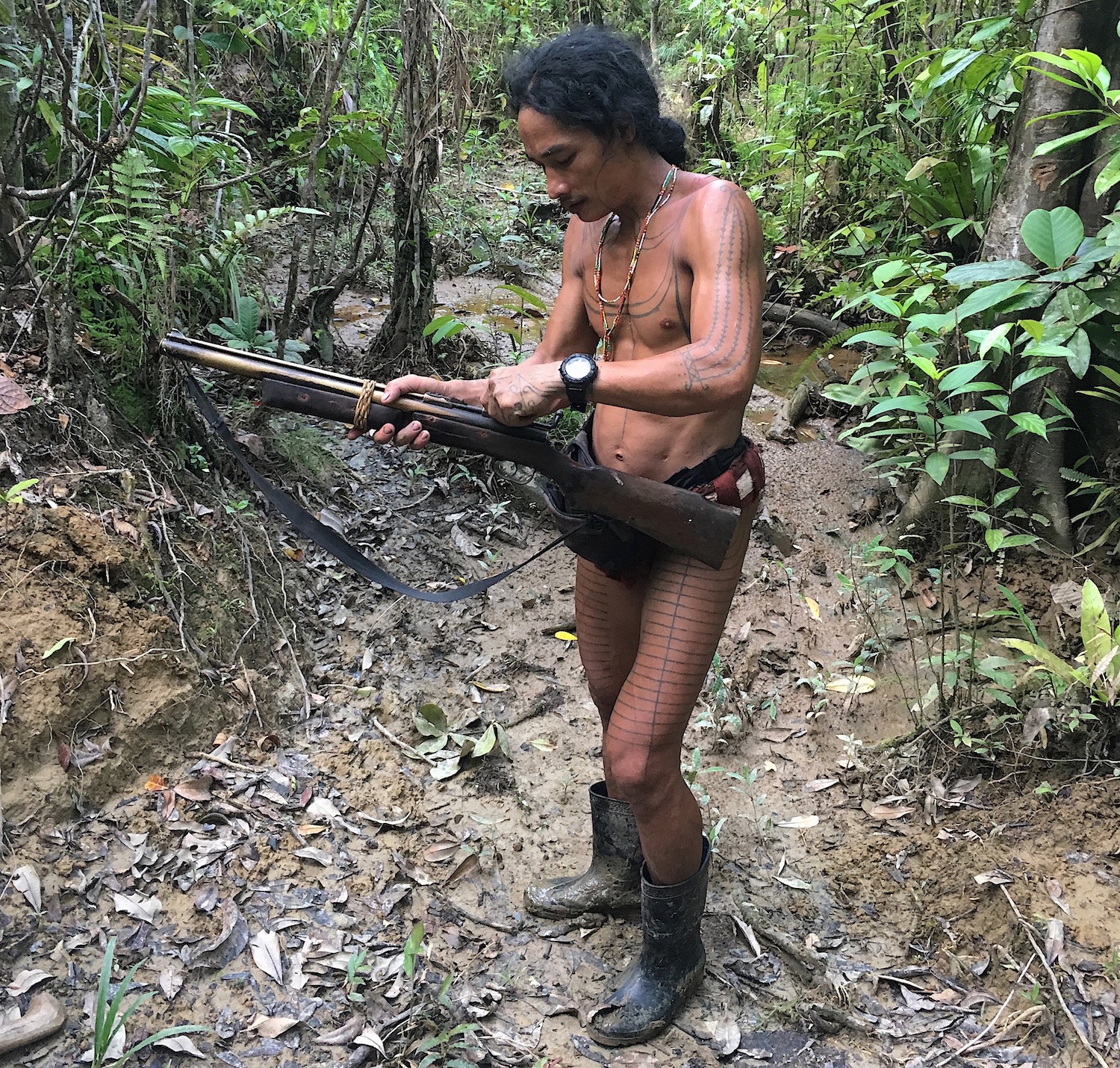My trekking guide, Agus, told me the story of some Dutch journalists who wanted to visit an “authentic” Siberut Island village, and were disappointed that the Mentawai they saw within a day of the Baderaeket River used plastic cups and ate processed sugar. Insisting that Agus take them deeper into the jungle for a purer Mentawai experience, they walked for three more days island, only to find more villages with plastic cups and processed sugar.
Hence the challenge in seeking abstractions such as “authenticity.” To be sure, the Mentawai I met were deeply traditional – most of them wearing the same kind of bark-fiber loincloths and living in the same style of native-timber longhouses as their ancestors – but it would be a mistake to insinuate that their lives aren’t touched by the globalized modern world.
Take for instance this photo of Amantiru during an outing to collect sago worms. The most obvious modern accessory here is Amantiru’s air-rifle, which he uses to shoot the occasional bird or squirrel. This is in keeping with the spirit (if not the original technology) of Mentawai hunter-gatherer traditions – and while Amantiru is skilled with a bow, buying gun-pellets is simpler than continually collecting the materials to make arrows and hunting-poison.
Look a little closer and you’ll see that Amantiru is wearing rubber boots. He prefers to go barefoot, but collecting sago-worms requires a lot of work with the axe (another modern tool), and the boots provide better stability for this.
Amantiru’s wristwatch is yet another item that came to him from the outside world, as is the nylon-strap bum-bag tied around his waist. Almost all the Mentawai men I met on Siberut used both items: The watch for timing hunting expeditions on days when clouds are obscuring the sun, and (since loincloths don’t feature pockets) the bum-bag for hauling small items like gun-pellets and cigarettes.
Just when I began to think that jungle life was beginning to bend toward the modern world, however, Amantiru would come home with a squirrel he’d shot for dinner, or his wife Baetiru would offer me a paste of tangy-citrusy “terekeh” ants as a snack.
My favorite such moment came during my second afternoon in the jungle, when I asked after Amantiru, and Agus told me: “Wait: I will call him.” I instinctively waited for Agus to take out a phone, but instead he stood up and started banging on the tudukor – a hollow log strapped to the porch-rail.
Sure enough, Amantiru emerged from the jungle ten minutes later, carrying another dead squirrel.
Note: “Dispatches” are short vignettes, profiles, and mini-essays written and posted from the road, often in tandem with my Instagram account. For more full-formed writing, check out my book Marco Polo Didn’t Go There, or the Essays or Stories archives on this site. I don’t host a “comments” section, but I’m happy to hear your thoughts via my Contact page.

